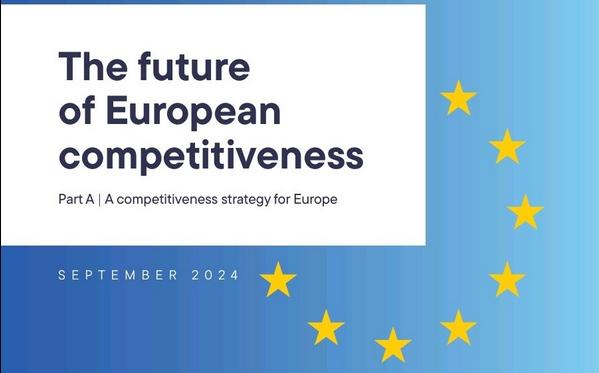Opinion / Columnist
South Africa energy poverty to deepen
11 Sep 2024 at 12:45hrs |
33 Views

I want to talk to you about the attached report. It is available online.
The report is about the future of European competitiveness and outlines a competitiveness strategy for Europe in September 2024.
It provides fascinating insights into the root cause of high energy prices.
The root cause of high energy prices in Europe is attributed to several factors, including:
- Lack of natural resources leading to import dependency
- Limited collective bargaining power affecting the negotiation of favourable prices
- Slow and suboptimal infrastructure investment hindering the transition to cleaner energy sources
- Market rules and financial aspects impacting the decoupling between renewable and fossil fuel prices
- Higher energy taxation compared to other regions.
These factors collectively contribute to high energy prices in Europe.
The report also highlights that Europe's lack of collective bargaining power in importing gas contributes to the high energy prices. This limitation stems from several factors:
- Europe heavily relies on imports of natural gas and LNG, making it vulnerable to price fluctuations in global markets.
- The EU's potential collective bargaining power is not effectively leveraged, leading to a reliance on spot prices, which can be volatile.
- In situations like the 2022 crisis, intra-EU competition for natural gas among buyers willing to pay high prices can drive unnecessary price increases.
- Efforts to coordinate demand with competitive supply offers through Aggregate EU lack obligations for joint purchasing, limiting the EU's ability to negotiate better prices collectively.
- The reliance on LNG, which typically has higher prices than pipeline gas, further exposes Europe to price volatility.
- The reduction of pipeline gas supply from Russia has increased reliance on LNG, leading to more robust competition and price fluctuations in the market.
- Financial and behavioural aspects in gas derivative markets can exacerbate volatility, with a few non-financial corporates dominating trading activity, potentially amplifying market moves.
- Concentrating positions in European gas markets among a few companies can lead to significant market influence and potentially impact pricing dynamics.-
The implication for South Africa is that a lot more deployment of renewable energy technologies must be partnered with imported gas. But imported gas is the root cause of higher energy prices. This pathway will deepen energy poverty in South Africa. Access to energy resources is going to be discriminatory.
Think about it...
The report is about the future of European competitiveness and outlines a competitiveness strategy for Europe in September 2024.
It provides fascinating insights into the root cause of high energy prices.
The root cause of high energy prices in Europe is attributed to several factors, including:
- Lack of natural resources leading to import dependency
- Limited collective bargaining power affecting the negotiation of favourable prices
- Slow and suboptimal infrastructure investment hindering the transition to cleaner energy sources
- Market rules and financial aspects impacting the decoupling between renewable and fossil fuel prices
- Higher energy taxation compared to other regions.
These factors collectively contribute to high energy prices in Europe.
The report also highlights that Europe's lack of collective bargaining power in importing gas contributes to the high energy prices. This limitation stems from several factors:
- Europe heavily relies on imports of natural gas and LNG, making it vulnerable to price fluctuations in global markets.
- The EU's potential collective bargaining power is not effectively leveraged, leading to a reliance on spot prices, which can be volatile.
- In situations like the 2022 crisis, intra-EU competition for natural gas among buyers willing to pay high prices can drive unnecessary price increases.
- Efforts to coordinate demand with competitive supply offers through Aggregate EU lack obligations for joint purchasing, limiting the EU's ability to negotiate better prices collectively.
- The reliance on LNG, which typically has higher prices than pipeline gas, further exposes Europe to price volatility.
- The reduction of pipeline gas supply from Russia has increased reliance on LNG, leading to more robust competition and price fluctuations in the market.
- Financial and behavioural aspects in gas derivative markets can exacerbate volatility, with a few non-financial corporates dominating trading activity, potentially amplifying market moves.
- Concentrating positions in European gas markets among a few companies can lead to significant market influence and potentially impact pricing dynamics.-
The implication for South Africa is that a lot more deployment of renewable energy technologies must be partnered with imported gas. But imported gas is the root cause of higher energy prices. This pathway will deepen energy poverty in South Africa. Access to energy resources is going to be discriminatory.
Think about it...
Source - X
All articles and letters published on Bulawayo24 have been independently written by members of Bulawayo24's community. The views of users published on Bulawayo24 are therefore their own and do not necessarily represent the views of Bulawayo24. Bulawayo24 editors also reserve the right to edit or delete any and all comments received.
Join the discussion
Loading comments…


































